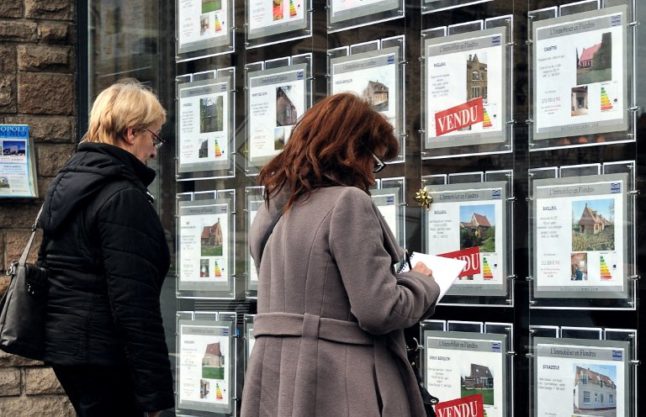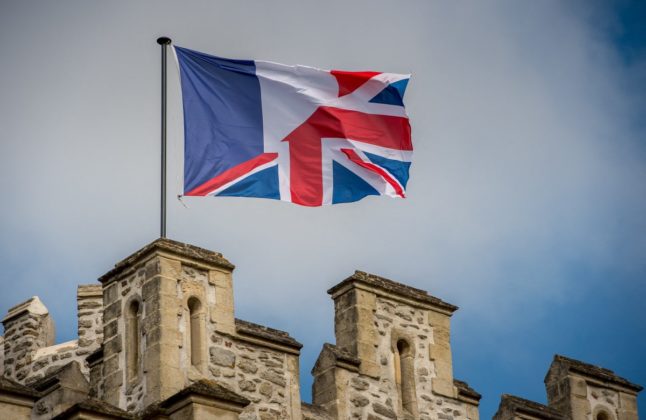The number of non-residents buying property in France is on the rise, but British property hunters are on decline, according to a new report from Notaires de France.
French notaires are crucial figures when it comes to buying and selling property in France – in fact a sale cannot legally be completed without a notaire – and their latest report, using figures from 2022 shows that after the pandemic the number of foreign purchasers of property in France was on the rise again – with a total 1.8 percent of all transactions on existing properties in mainland France.
In Paris, the number of non-resident foreign buyers reached its highest level in 10 years, comprising 3.4 percent of all purchases, Notaires de France’s figures show.
READ ALSO EXPLAINED: The real role of a notaire when buying a house in France
Second homes are popular in France – in fact one in 10 properties is a second home – but most of them are owned by French people who like a little bolthole by the sea, in the mountains or deep in rural France. Often these homes are former family properties now used as holiday homes.
There is however a significant minority of second homes that are owned by people who live outside France – from chalets in ski resorts to seaside properties or old rural homes bought as a renovation project.
And after a difficult period during the pandemic when travel restrictions meant long periods when owners could not travel to their French properties, the market is now picking up again.
In the Creuse département of central France, eight percent of all sales in 2022 were to non-French second-home property hunters – albeit that Creuse is one of France’s most sparsely populated départements with a smaller overall number of property transactions.
In Alpes-Maritimes (which includes the city of Nice) 7 percent of all property transactions were to foreign second-home owners while the département of Ardennes on the Belgian border saw a similar picture.
Over to the west, foreign buyers were responsible for 6 percent of property purchases in Dordogne and Charente – areas traditionally popular with Brits.
The same figure was reported in the central département of Nièvre and the Alpine area of Haute-Savoie.
READ ALSO REVEALED: The top European countries for overseas property buyers
Notably, however, the number of Britons buying property in France has fallen steadily and continuously in recent years, and has dropped below 20 percent of all foreign non-resident purchasers in 2022.
Since Brexit, life is more complicated for British second-home owners who must either restrict their visits to 90 days in every 180 or go through the time-consuming process of getting a short-stay visitor visa.
In fact, Belgian buyers are now the most common in France, Notaires de France said. They represented 19 percent of all purchases by non-French non-resident buyers last year. They were the chief non-resident buyers in the regions of Hauts-de-France, Corsica, Occitanie and Grand-Est, the second most common non-resident buyers in Normandy and Provence-Alpes-Côte d’Azur.
German buyers, meanwhile, represented 11 percent of all non-French non-resident purchasers in 2022, buying the most property of all non-resident foreigners in Provence-Alpes-Côte d’Azur.
Britons were still well represented, however, topping the foreign-buyer charts in Brittany, Normandy, Centre-Val-de-Loire, Pays-de-la-Loire and Nouvelle Aquitaine, and were the second most-common foreign purchasers in Occitanie and Auvergne-Rhône-Alpes.
US buyers, meanwhile, were the most interested in buying in the Paris region, the Notaires’ study found.
And it seems that foreign buyers are prepared to push the boat out for their dream home in France. Since 2021, prices for homes bought by non-resident foreigners have risen faster than prices for properties bought by French people.
READ ALSO Revealed: The ‘hidden’ extra costs when buying property in France
Away from the capital, the sale price of older property rose about 15 percent between 2019 and 2022. But for non-resident buyers in France, that price increase over the same period was 29 percent, compared to a relatively low 14 percent for French property buyers here.
In the Ile-de-France, the price of homes bought by non-resident foreigners jumped 22 percent in the same period, compared to 11 percent for anyone living in France.
READ ALSO How long does it normally take in France to buy a property?
Meanwhile, in Centre-Val-de-Loire, where Britons were the most popular non-French non-resident buyers, prices rose 30 percent among properties bought by non-resident foreigners, compared to just two percent for French residents.
By region
Percentage of purchases in 2022 made by non-resident foreigners.
- Brittany – Brits 30 percent, Germans 21 percent, Belgians 18 percent
- Normandy – Brits 33 percent, Belgians 26 percent, Germans 12 percent
- Hauts-de-France – Belgians 68 percent, Dutch 10 percent, Brits 8 percent
- Grand Est – Belgians 24 percent, Germans 23 percent, Spanish and Portuguese 14 percent
- Bourgogne-Franche-Comté – Dutch 31 percent, Swiss 21 percent, Belgians 16 percent
- Auvergne-Rhone-Alpes – Swiss 23 percent, Brits 18 percent, Belgians 17 percent
- Provence-Alpes-Côte d’Azur – Germans 16 percent, Belgians 15 percent, 11 percent made up of Swedish, Norwegian and Danish nationals
- Corsica – Belgians 37 percent, Germans 27 percent, Italians 21 percent
- Occitanie – Belgians 23 percent, Brits 18 percent, Germans 11 percent
- Nouvelle-Aquitaine – Brits 45 percent, Belgians 14 percent, Dutch 14 percent
- Centre-Val-de-Loire – Brits 27 percent, Belgians 20 percent, Dutch 20 percent
- Pays-de-la-Loire – Brits 39 percent, Belgians 19 percent, Americans 9 percent
- Île-de-France – Americans 14 percent, Lebanese 8 percent, Italians 8 percent



 Please whitelist us to continue reading.
Please whitelist us to continue reading.
Member comments